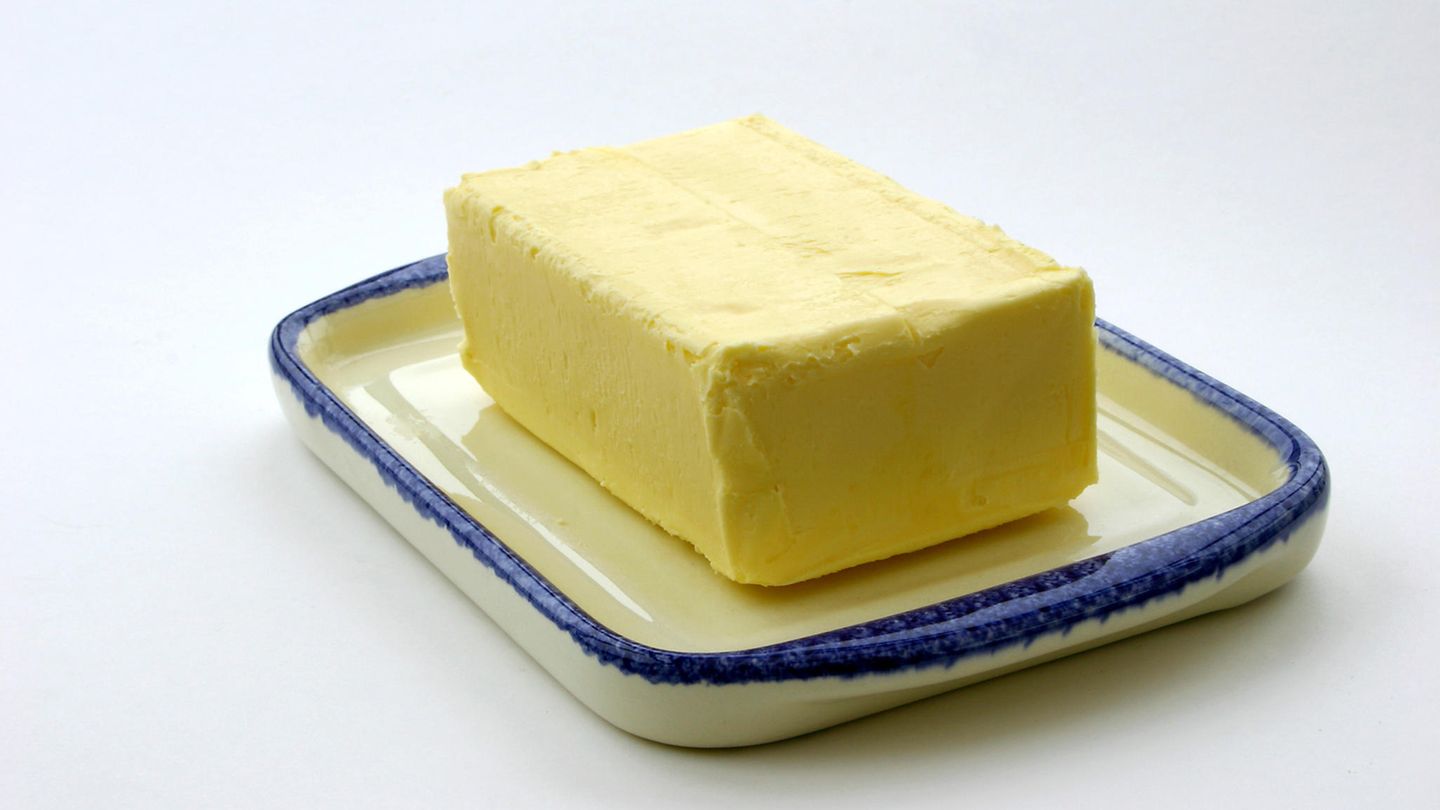Understanding Grass-Fed Butter
Grass-fed butter is made from the milk of cows that graze on pasture, consuming a diet primarily composed of grass and other foraged plants. This differs from conventional butter, which is often made from the milk of grain-fed cows raised in feedlots. Grass-fed butter typically has a richer flavor and a deeper yellow color due to its higher content of fat-soluble vitamins and omega-3 fatty acids.
Nutritional Profile of Grass-Fed Butter
Grass-fed butter is not only delicious but also packed with essential nutrients that can benefit your health. Here’s a breakdown of its nutritional profile:
Healthy Fats
Grass-fed butter is a rich source of healthy fats, including saturated fat, monounsaturated fat, and polyunsaturated fat. It contains beneficial fatty acids like conjugated linoleic acid (CLA) and omega-3 fatty acids, which have been linked to various health benefits.
Vitamins
Grass-fed butter is an excellent source of fat-soluble vitamins, particularly vitamin A, vitamin D, vitamin E, and vitamin K2. These vitamins play vital roles in immune function, bone health, and overall well-being.
Minerals
Grass-fed butter contains essential minerals such as calcium, magnesium, and selenium, which are important for bone health, muscle function, and antioxidant activity.
Antioxidants
Grass-fed butter contains antioxidants like beta-carotene, lutein, and zeaxanthin, which help protect cells from damage caused by free radicals and oxidative stress.
Health Benefits of Grass-Fed Butter
Supports Heart Health
Contrary to popular belief, saturated fats in moderation are not necessarily harmful to heart health. Grass-fed butter contains a balanced ratio of saturated fats, monounsaturated fats, and polyunsaturated fats, which may help improve cholesterol levels and reduce the risk of heart disease when consumed as part of a balanced diet.
Enhances Brain Function
The omega-3 fatty acids found in grass-fed butter, particularly docosahexaenoic acid (DHA), are essential for brain health and cognitive function. Consuming grass-fed butter regularly may help support memory, concentration, and overall brain function.
Promotes Bone Health
Vitamin K2, found abundantly in grass-fed butter, plays a crucial role in bone metabolism and calcium utilization. Incorporating grass-fed butter into your diet may help improve bone density and reduce the risk of osteoporosis and fractures.
Boosts Immune Function
Grass-fed butter is rich in fat-soluble vitamins A and D, both of which are essential for a healthy immune system. These vitamins help regulate immune cell function, support the body’s defense against infections, and reduce inflammation.
Supports Weight Management
CLA, a type of fatty acid found in grass-fed butter, has been associated with weight loss and improved body composition. Consuming moderate amounts of grass-fed butter as part of a balanced diet may help support healthy weight management and fat loss.
Improves Skin Health
The combination of vitamins A, D, and E in grass-fed butter makes it beneficial for skin health. These vitamins help nourish and hydrate the skin, promote collagen production, and protect against UV damage, leading to a clearer, more radiant complexion.
Provides Energy and Satiety
Grass-fed butter is a concentrated source of energy, providing a quick and sustainable fuel source for the body. Its rich flavor and satisfying texture can also help promote feelings of fullness and satiety, reducing cravings and overeating.
How to Choose and Use Grass-Fed Butter
When selecting grass-fed butter, look for products labeled “grass-fed” or “pasture-raised” to ensure you’re getting the highest quality butter from cows that have been allowed to graze on pasture. Grass-fed butter is widely available in most grocery stores and online retailers.
Here are some tips for incorporating grass-fed butter into your diet:
Cooking
Use grass-fed butter for sautéing, frying, baking, and roasting to add flavor and richness to your favorite dishes.
Spreading
Spread grass-fed butter on toast, muffins, crackers, and other baked goods for a delicious and nutritious topping.
Bulletproof Coffee
Blend grass-fed butter into your morning coffee or tea along with MCT oil for a creamy, energy-boosting beverage known as bulletproof coffee.
Condiments
Make homemade sauces, dressings, and dips using grass-fed butter as a base for added flavor and richness.
Frequently Asked Questions (FAQs)
Is grass-fed butter healthier than conventional butter?
Yes, grass-fed butter tends to be higher in beneficial nutrients like vitamins A, D, E, and K2, as well as omega-3 fatty acids and CLA compared to conventional butter.
Can I use grass-fed butter if I’m lactose intolerant?
Some people with lactose intolerance find that they can tolerate grass-fed butter better than conventional butter since it contains lower levels of lactose. However, individual tolerance may vary, so it’s best to monitor your symptoms and consult with a healthcare professional if you have concerns.
Is grass-fed butter suitable for a ketogenic diet?
Yes, grass-fed butter is a popular ingredient in ketogenic diets due to its high fat content and minimal carbohydrate content. It can be used liberally in cooking and baking to add flavor and healthy fats to keto-friendly meals.
Can grass-fed butter help with weight loss?
While grass-fed butter contains beneficial nutrients that may support weight management, it’s important to consume it in moderation as part of a balanced diet. Incorporating grass-fed butter into a healthy lifestyle that includes regular exercise and mindful eating habits may contribute to weight loss over time.
Is grass-fed butter more expensive than conventional butter?
Yes, grass-fed butter typically comes at a higher price point than conventional butter due to the higher cost of raising grass-fed cows. However, many people consider the health benefits and superior flavor of grass-fed butter to be worth the investment.
Can I substitute grass-fed butter for other fats in recipes?
Yes, grass-fed butter can generally be substituted for other fats like olive oil, coconut oil, or conventional butter in most recipes. Keep in mind that it has a distinct flavor, so it may alter the taste slightly depending on the dish.
Where can I buy grass-fed butter?
Grass-fed butter is available at most grocery stores, health food stores, and online retailers. Look for products labeled “grass-fed” or “pasture-raised” to ensure you’re getting the highest quality butter from cows that have been allowed to graze on pasture.
Conclusion
Grass-fed butter is more than just a flavorful ingredient – it’s also a nutrient-dense superfood with a range of potential health benefits. From supporting heart health and brain function to promoting bone health and immune function, grass-fed butter has earned its place as a valuable addition to a healthy diet. By choosing high-quality grass-fed butter and incorporating it into your favorite recipes, you can enjoy its delicious taste and nourishing properties while reaping the rewards of better health.
- Sculptra Surrey – Collagen Stimulation Therapy Near Warlingham, Surrey - May 24, 2025
- Tinkerbell Nose Tip Lift Treatment Near East Clandon, Surrey - May 23, 2025
- Tear Trough Filler Where To Inject - May 22, 2025

